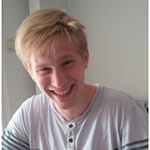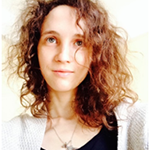At the recent World Health Summit in Berlin there was a workshop discussing the case of data sharing in Public Health Emergencies” organized by the Centre Virchow-Villermé.
About two years ago, during the Ebola outbreak in Western Africa, it became clear that researchers weren’t sharing screened viral genomes openly, thus delaying the outbreak response. At that moment there were no good guidelines in place to ensure that this happened.
This was part of the reason why, in September 2015, WHO held a consultation to advance the development of global norms on data and results sharing in public health emergencies.
The World Health Organisation set some principles that sound promising:
“The default option is that data should be shared (i.e. opt-out policy) to ensure that the knowledge generated becomes a global public good.”
Despite these set principles, the reality in the field is not that simple. The goal of the workshop was to address collaboration and open dialogue in global health related research as a whole by using the example of data and results sharing during public health emergencies.
The conclusions of an earlier workshop on the benefits and barriers of data sharing held at the Geneva Health Forum in April this year also call for a more holistic approach:
“It is not enough to share data: we need to share governance structures, scientific questions and ideas, and interpretation.”
Behind the case of public health emergencies and the question of data sharing, there are broader issues concerning the underlying principles of research. The aims of knowledge creation and dissemination vs. the economic imperative and the plain need of getting recognition and making a career in research are sometimes contradictory.
We believe, that not only the global health community, but the scientific community as a whole needs to have an informed discussion on how to practically implement elements of more collaborative and open science.
This recent event can be seen as a further step towards this discussion which needs to involve researchers, governmental representatives, funders, publishers, and other partners. Legal and ethical constraints and barriers like data privacy and security need to be addressed. There is a clear need to rethink incentive mechanisms and crediting structures in research.
Like their patients, doctors around the world still face steep challenges in gaining access to the latest medical knowledge. Scientists are still going through the slow process of traditional peer review. Since shared datasets are still not sufficiently incentivized, researchers do not feel urged to publish and share their results. All this is constraining scientific advances and inevitably costing lives—regardless of outbreak situations and public health emergencies.
Let’s open the discussion further and consider all health related research—towards global norms for and implementation of a more open science. Meanwhile innovative approaches and new ideas with all involved parties playing their part are needed: The Wellcome Trust just launched an open research publishing platform in cooperation with F1000, the International Committee of Medical Journal Editors proposes that authors should be required to share data no later than 6 months after publication, the European Competitiveness Council asks for all scientific papers to be freely available by 2020—but will those initiatives be successful if the research community itself is not leading change as well?
 Peter Grabitz is a medical student at Charité in Berlin and actively involved in questions around more open and reproducible research.
Peter Grabitz is a medical student at Charité in Berlin and actively involved in questions around more open and reproducible research.
 Célya Gruson Daniel is a research engineer at the Centre Virchow-Villermé for Public Health Paris-Berlin. She is also a PhD Student at the Centre de Recherches Interdisciplinaires (CRI/Paris Descartes) and her work concerns the discourse and conceptions related to Openness in Science and contemporary research.
Célya Gruson Daniel is a research engineer at the Centre Virchow-Villermé for Public Health Paris-Berlin. She is also a PhD Student at the Centre de Recherches Interdisciplinaires (CRI/Paris Descartes) and her work concerns the discourse and conceptions related to Openness in Science and contemporary research.
 Ilaria Montagni is a junior researcher in Health Communication at the University of Bordeaux. She is particularly interested in the impact of new technologies on public health.
Ilaria Montagni is a junior researcher in Health Communication at the University of Bordeaux. She is particularly interested in the impact of new technologies on public health.
Competing interests: None declared.
